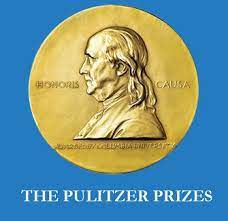
In Maine we are going through another hot and humid stretch. In town, people will complain of the heat. But on Saturday, the high is forecast to be 68. In town, there are bound to be people who will complain of this coolness in August.
Contrasts. They’re everywhere and, as a catalyst, they generate interest and irony.
In writing and poetry, contrasts always make stronger points than they ever could were only one side of the odd couple being described. I found a perfect example of this in the collected poems of Charles Simic:
My Weariness of Epic Proportions
I like it when
Achilles
Gets killed
And even his buddy Patroclus–
And that hothead Hector–
And the whole Greek and Trojan
Jeunesse dorée
Is more or less
Expertly slaughtered
So there’s finally
Peace and quiet
(The gods having momentarily
Shut up)
One can hear
A bird sing
And a daughter ask her mother
Whether she can go to the well
And of course she can
By that lovely little path
That winds through
The olive orchard
Nota bene: jeunesse dorée (literally: “gilded youth”) is French for “wealthy, stylish, sophisticated young people”
Here Simic gives us an effective juxtaposition between Greek gods and heroes and the everyday lives of ordinary people like you and me. Enough already with Homer and his hotheaded heroes slashing and slaying, conquering and crowing! A little girl wants to go to the well. When her mother grants permission (how sweet of the girl to ask first!), the daughter chooses a path that winds through an olive orchard. Can you inhale the lovely, warm smell of olives right now? Can you hear the leaves moving softly to the wind?
And pardon my hubris, but isn’t that what it’s all about? Isn’t that what matters in life–the little things? If you want such simplicity to loom large, park it next to something epic. Epically tiresome. See if your weariness doesn’t get more bang for its buck.
Of course a modern reader of this poem cannot help but compare Greek and Trojan heroes to headline-hogging politicians. Don’t they incite your weariness to epic proportions? Don’t you take refuge by turning off news sources and focusing on the simple, everyday things and people you love? And, if not, what are you waiting for?
What a contrast the songs of the morning mockingbird make with presidents and Congressmen, for instance. As Wordsworth once said: “Come, hear the woodland linnet… There’s more of wisdom in it.”
Moral of the story: As a writer and a poet, look to contrasts early and often. Singly, they may be strong, but side-by-side, they are much, much stronger.
